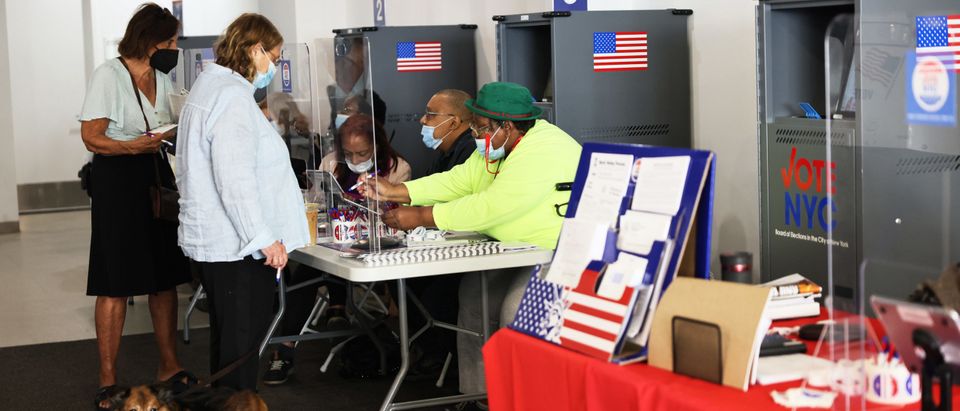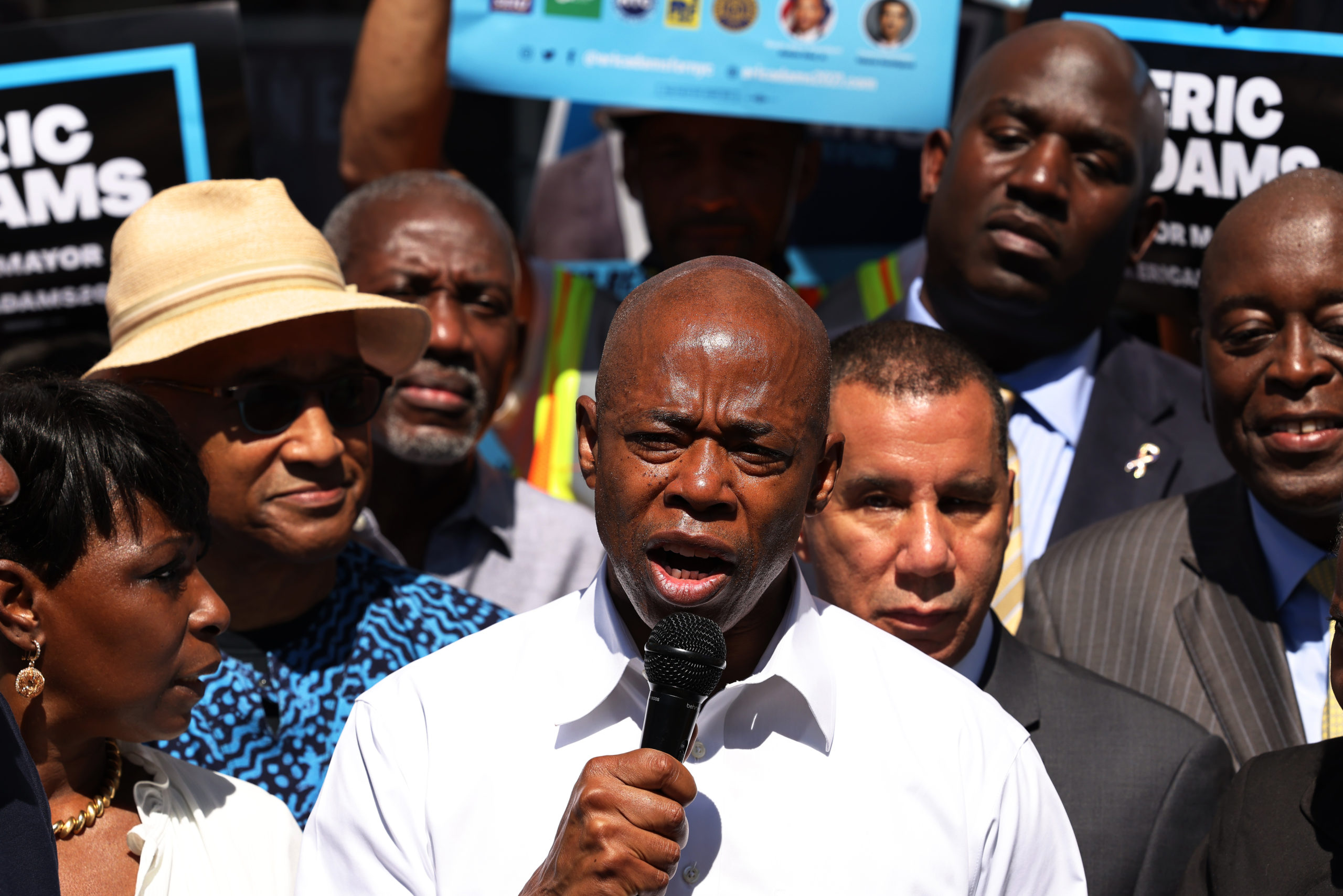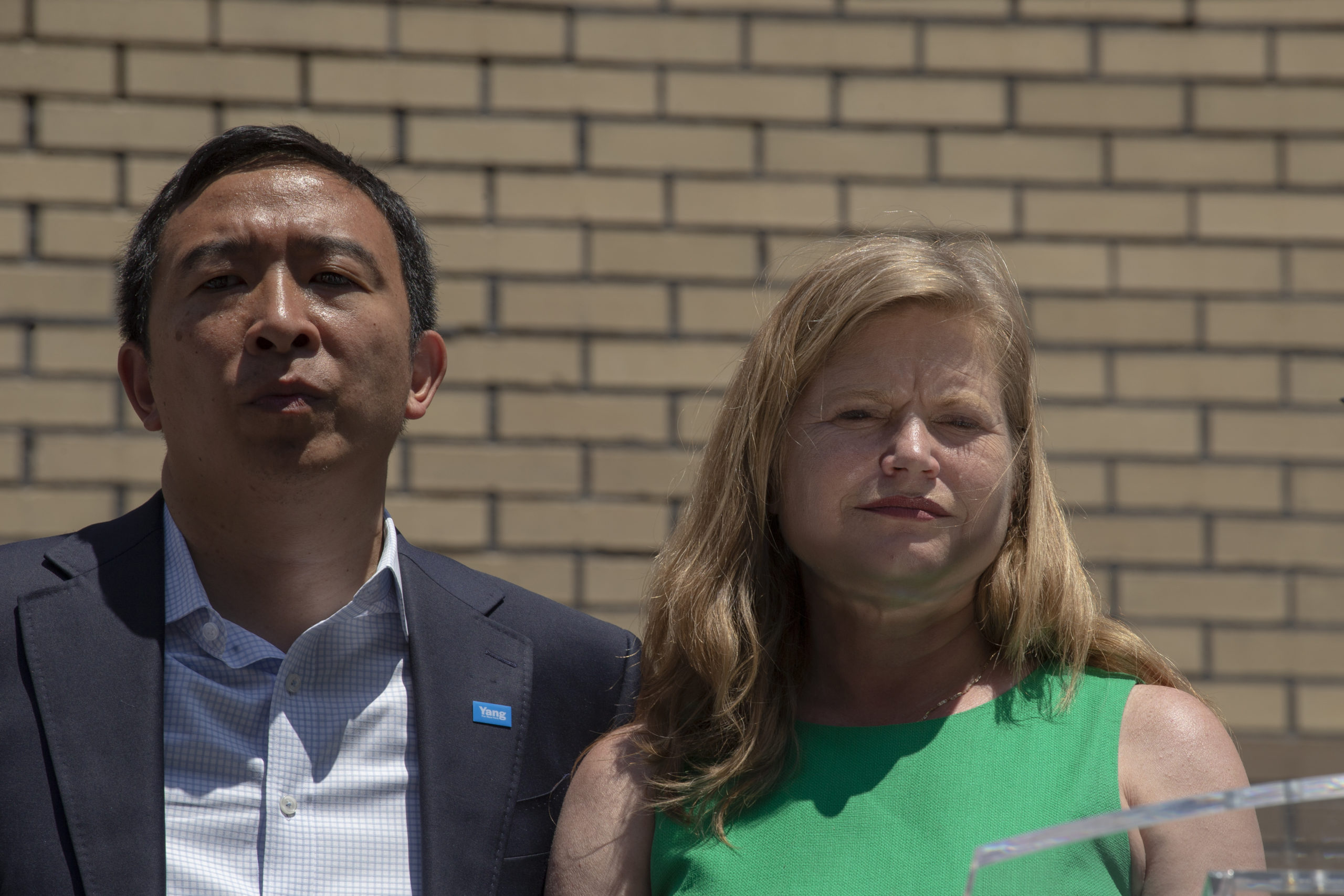
(Michael M. Santiago/Getty Images)
ANDREW TRUNSKY POLITICAL REPORTER June 21, 2021
- Voters in New York City head to the polls Tuesday to decide who will become Democratic nominee to be the city’s next mayor, and who will therefore likely lead its economic comeback, fight against rising violent crime and more.
- Eight Democrats are vying for the nomination, but polls have shown the top four pulling away from the rest of the field. NYC, however, is using ranked-choice voting for the first time, making it hard to predict who will emerge victorious.
- The primary campaign has been contentious, with candidates Andrew Yang and Kathryn Garcia teaming up during the final weekend of campaigning in an attempt to blunt frontrunner Eric Adams’ late momentum.
- The alliance drew sharp rebuke from Adams: “For them to come together like they are doing in the last three days, they’re saying we can’t trust a person of color to be the mayor of the City of New York when this city is overwhelmingly people of color.”
Voters in New York City head to the polls Tuesday to decide who will become Democratic nominee to be the city’s next mayor, and who will therefore likely lead its comeback from the pandemic, its fight against rising violent crime and more.
Eight Democrats are vying to win Tuesday’s primary, but polls have shown the top four — Brooklyn Borough President Eric Adams, former presidential candidate Andrew Yang, former city sanitation commissioner Kathryn Garcia and Maya Wiley, a former counsel to Mayor Bill de Blasio — pulling away from the other half of the field. New York City, however, is using ranked-choice voting, a method where voters rank their preferred candidates in order instead of picking just one, for the first time in its history, making it hard to predict who will emerge from Tuesday’s race as the victor.
Adams, a former New York Police Department officer who has campaigned on lowering the city’s crime rate and obtained the endorsement of most of the city’s police organizations, has led in recent polls. He has supported past use of stop-and-frisk, opposes the “defund the police” movement and has said that he will carry if elected, putting him at odds with many of his fellow candidates and making him a target of the progressive left.
His message about rising crime and the consequences that can result seemed to hit home for Adams on Sunday, when he announced that one of his campaign volunteers had been stabbed in the Bronx.
“We pray for him,” Adams said. “This violence must stop.”
Eric Adams speaks in Harlem on Thursday. (Michael M. Santiago/Getty Images)
Like throughout the 2020 presidential race, Yang’s central pledge during his mayoral campaign has revolved around a universal basic income. His campaign website calls for a UBI for the city’s poorer residents in order to lessen poverty and accelerate the city’s economic recovery, and he has pledged to quickly build more affordable housing to shelter the city’s homeless population.
Garcia has spent decades working for the city, and her campaign site emphasizes policies aimed toward helping small businesses that were hammered by the pandemic and helping combat the effects of climate change, including transitioning to a fully renewable energy economy.
Though Adams is leading, Yang and Garcia are not far behind in many recent polls, and the two even teamed up during the final weekend of campaigning to urge their respective supporters to rank the other second in an attempt to blunt Adams’ late momentum.
The alliance drew sharp rebuke from Adams and his supporters, some of whom baselessly alleged that their alliance — and call to rank themselves ahead of him — was an attempt to disenfranchise voters of color.
“For them to come together like they are doing in the last three days, they’re saying we can’t trust a person of color to be the mayor of the City of New York when this city is overwhelmingly people of color,” Adams said.
Andrew Yang and Kathryn Garcia campaign in NYC’s Chinatown on Sunday. (Kena Betancur/Getty Images)
His comments were rebuked by Wiley, the most progressive of the top four candidates who has received endorsements from prominent figures including the Working Families Party, Massachusetts Sen. Elizabeth Warren and New York Rep. Alexandria Ocasio-Cortez.
“These accusations are a weaponization of real fears and concerns about our democracy, and have no place here,” Wiley said in a statement Sunday. “Ranked Choice Voting protects the voice of Black and brown voters … [It] – or alliances formed from it – is not voter suppression, it’s not a poll tax and to compare it to that denigrates the work of so many who have come before us.”
